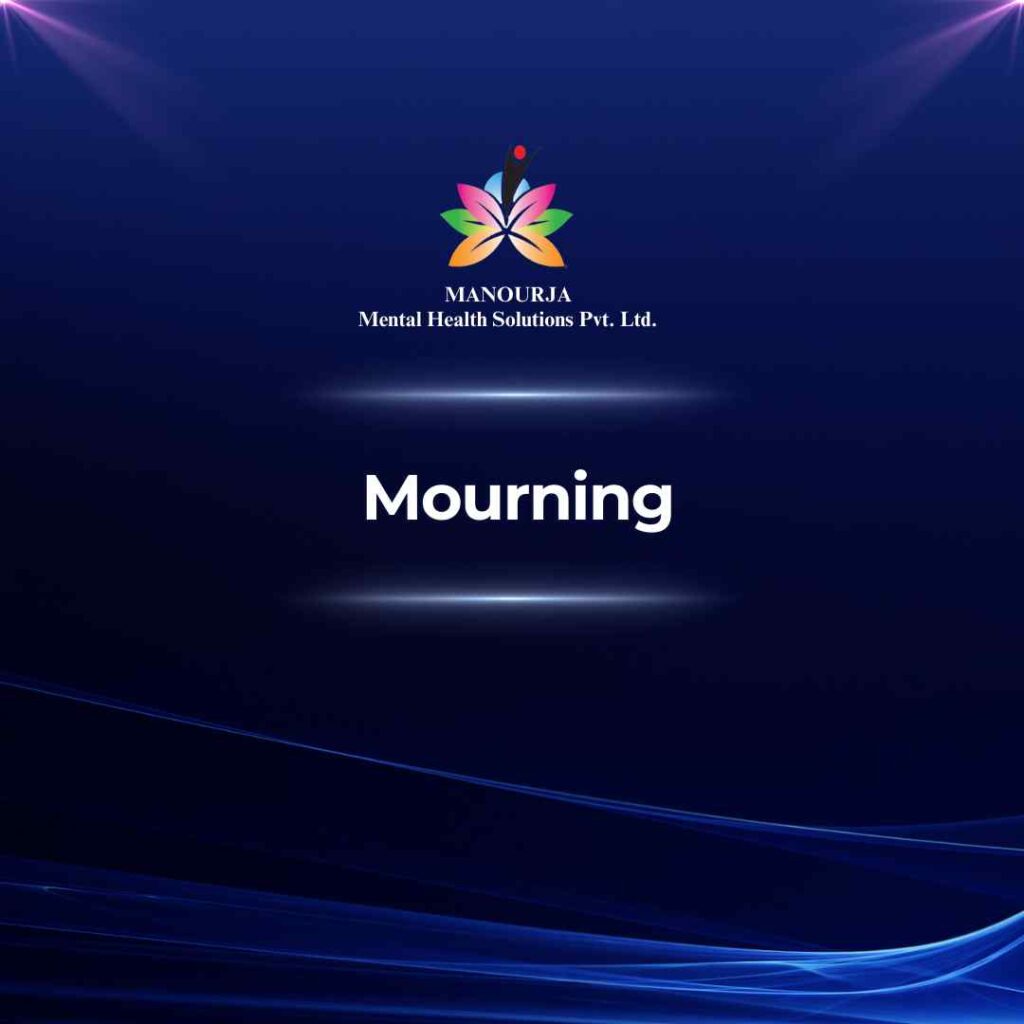Mourning

Mourning refers to the process of grieving the loss of someone or something significant. It is a natural response to loss and involves emotional, cognitive, and behavioral components as individuals come to terms with the reality of their loss and adjust to life without the person or object they’ve lost. Mourning typically includes feelings of sadness, longing, and sometimes guilt or anger, and it can vary in intensity and duration depending on the individual and the nature of the loss.
“Mourning” as a Sign and Symptom of Mental Illness
Mourning, in itself, is not considered a symptom of mental illness but rather a normal and necessary process of coping with loss. However, prolonged or complicated mourning can sometimes be indicative of underlying mental health issues, especially when it significantly impairs daily functioning or exacerbates existing conditions.
Mental Illnesses Where Mourning May Complicate Symptoms
- Major Depressive Disorder (MDD): While mourning a loss is normal, it can sometimes trigger or exacerbate depressive episodes in individuals predisposed to depression. Symptoms may include persistent sadness, loss of interest in activities, changes in appetite or sleep patterns, and feelings of worthlessness or guilt.
- Persistent Complex Bereavement Disorder: This is a condition where mourning becomes prolonged and intense, lasting well beyond what is considered typical. It may involve intense yearning or preoccupation with the deceased, difficulty accepting the death, and significant emotional pain or difficulty moving on.
- Post-Traumatic Stress Disorder (PTSD): In cases where loss is sudden, unexpected, or traumatic (e.g., due to accidents, violence, or disasters), individuals may experience symptoms of PTSD such as intrusive memories, emotional numbness, hypervigilance, or avoidance behaviors.
- Adjustment Disorders: Following a significant loss, some individuals may develop adjustment disorders characterized by emotional distress and difficulty coping with daily life. Symptoms may include anxiety, depression, or behavioral disturbances.
Understanding Mourning in the Context of Mental Health
While mourning itself is a natural response to loss and not necessarily pathological, mental health professionals assess the duration, intensity, and impact of mourning on daily functioning to differentiate between normal grief reactions and more serious mental health concerns. Treatment approaches may include supportive counseling, psychotherapy, and in some cases, medication to help individuals navigate their grief and manage associated symptoms effectively.
At MANOURJA, we believe in the transformative power of counseling. Our experienced therapists offer a safe and supportive space where you can explore your thoughts, emotions, and challenges. Through personalized counselling sessions, we’ll work together to develop coping strategies, build resilience, and achieve lasting positive change. Discover the path to a healthier, happier you with MANOURJA counselling services.
MANOURJA Rehabilitation Services
At MANOURJA, we’re dedicated to helping you in rebuild your life, after difficult times. Our rehabilitation services focus on understanding what you need to move forward, whether you’re recovering from addiction, trauma, or any psychological – social challenges. We create personalized plans, that are all about helping you, regain your strength and find hope again. With a caring team by your side, you’ll have the support to make real progress and take steps toward a brighter, healthier future.
